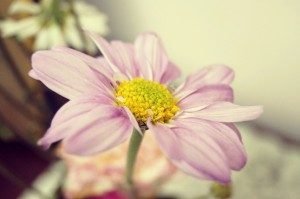What is an End-of-life Doula?
by Jeri Glatter

Entering the room of a dying person in the final days or hours is a heartfelt moment. As an End-of-Life Doula, I engage in being fully present. Often the loving gates of protection are rightfully in place – being supported by family members or friends. The desire to honor that space becomes paramount to the end-of-life doula.
This was the case in a recent end-of-life vigil in which I participated, hoping to be a supportive role during this important and significant time. In a hospice or assisted living facility there are many people who attend to the dying. There are nurses, social workers, doctors and hospice workers. I observed that many professionals state their role as they enter a patient’s room. So I did the same and my greeting was, “I’m Jeri and I’m an End-of-Life Doula.”
When a loved one is dying, it’s a time of increased emotion and anxiety for the family. There is often a significant amount of new information being introduced and the learning curve with family members can be tremendous. This was the case on this particular vigil.
To Be of Service
Once I stated my name and my role, the family asked, “What is an End-of-Life Doula?” So I started at the beginning and asked, “do you know what a Birth Doula is?” A negative response led me to begin again. I shared my knowledge that the word doula originates from a Greek word and in essence means to be of service. I explained that just as birth doulas are present to be of service to the birthing process, End-of-Life Doulas are present to be of service in the dying process.
The family was kind, openhearted and curious as they inquired, “How do you support the dying process?” I went on to explain that unlike the medical staff who is present to support your loved one medically, we are here to assist the dying and their family in the humanity of this life event. Our focus is to bring sacredness to this time. The philosophy end-of-life doulas embrace is that everyone is sacred. Our goal is to have that sacredness accompany him or her in their death, just as it did in life. Through this support and presence we hope to facilitate what is considered a “good death,” one in which the patient feels supported, loved and cared for as well as the family. We are that “space” in which the family can share their fears, their memories, and their hopes all free from judgment. We are that “space” in which the family can relax knowing that their loved one will not die alone.
End-of-life Vigils
As end-of-life doulas, one component of our role is to host a “vigil” during the active dying phase. We provide 24-hour presence to the dying and their family. We take shifts with other doulas to make this happen. Having a “Vigil Plan” is the optimal occurrence. This is when a “Lead Doula” has had the opportunity in advance to discuss with the dying person the atmosphere that will bring them the most comfort. Just as a mother and father would craft a “birth plan” for the birth of their child, a vigil plan serves the same purpose on the other end of the life spectrum.
An end-of-life vigil plan typically includes creating a personal guided visualization, determining if the patient would like therapeutic touch, music, candles or aromas, as well as prayer or any rituals. I have helped create end-of-life vigil plans in which the patient wanted their bed next to the window and fresh flowers from their garden on the bedside table. Other vigil plans called for having the family cat lay in bed with the dying. The end goal is to create a plan which will provide the optimal atmosphere in their surroundings to bring peace and relaxation. Once this plan is created, it gives the family and the patient peace of mind knowing how we can all best support the dying in the end.
A Final Question: “Doesn’t this work make you sad?” asked the family. In this instance my answer was this:
I believe death is a natural part of life. Birth and death rest on the opposite ends of a lifetime creating balance. My perception is that these two events are the bookends of life and both are equally meaningful and worthy of being honored. The sacredness of death is discovered within the celebration of our life story—and our legacy is the multitude of wonderful chapters in between those two points in time—to be remembered, enjoyed and shared for generations.
Jeri Glatter is an INELDA-certified End-of-life doula.
